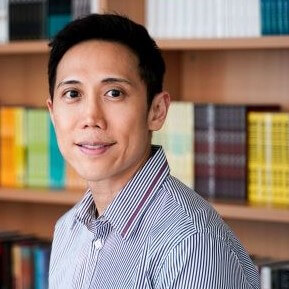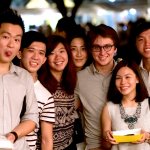By the SMU Digital Marketing Team
The global pandemic is just the most recent example confirming that we live in a Volatile, Uncertain, Complex and Ambiguous (VUCA) world. To thrive in this new normal, a well-rounded education that prepares us to navigate the new and the unexpected has become a priority in education. Interdisciplinary education, in particular, is key to understanding this world, by diagnosing its issues through multiple and inter-related lenses and methodologies, and making a difference in the industry or field one chooses.
Though we hear the mantra often, the adoption of interdisciplinary or integrative thinking might not be as intuitive as one would assume.
For instance, recognition bias is a phenomenon that keeps us bounded to what we know or are familiar to us. When we encounter someone new with an unfamiliar name hinting at a different cultural background, we tend to register a cause for caution due to a confirmation or recognition bias. This is because the human mind is often wired in a way that privileges familiarity when we perceive a new person or situation.

Prof Elvin Lim, Dean of SMU Office of Core Curriculum
According to Professor Elvin Lim, Dean of Core Curriculum at SMU, who spoke at the SMU Education Leaders’ Symposium 2021 on the topic of “Interdisciplinary and Integrative Studies: New Approaches to Problem-Solving for the 21st Century”, techniques such as recognition bias that economise on the resources expended on reasoning have been evolutionarily useful when we were trying to survive in, say, a jungle and needed to make quick judgements, such as identifying a potential predator or a prey. The use of mental shortcuts — or heuristics — allows us to sift out essential elements to make fast decisions, often for survival.
“We can’t take in all the details, all the time,” states Prof Lim, who is also a professor of political science.
“So we’ve learnt to specialise. And in specialising, and becoming familiar with a subset of available information, we economise on the amount of processing required the next time we are presented with the same or analgous information. There is merit in the strategy, but also costs. Over time, this narrowing of the analytic field of vision, the dismissal of information that we think is irrelevant simply because it is not familiar, causes blind spots.”
The remedy, however, is quite clear. What we call “specialisation” should occur alongside a cultivation of the ability to draw insights from multiple disciplines, so that a muscle is developed to resist the default toward the familiar explanations, and to apply an integrative approach to problem-solving.
In search of disciplinary openness
At SMU, we believe that a combination of global exposure, an interdisciplinary Core Curriculum, community service and experiential learning allows us to educate the whole individual. The opportunity to pursue unrestricted second major options with over 300 double major combinations allows our students to explore and to cultivate interdisiciplinary dexterity.
“Using the analogy of the eye, we are teaching the muscles in the eye to zoom in and out,” explains Prof Lim.
“If we only zoom in, one day, we may forget how to zoom out. These methods help us to avoid the familiar. They give us a strategy to tolerate difference or ambiguity; they give us a certain comfort with alternative viewpoints and ability to suspend the premature instinct to conclude; they generate a kind of disciplinary openness, as well as a posture of humility.”
“If we only zoom in, one day, we may forget how to zoom out.”
The value of multidisciplinary learning is in gleaning insights generated from a diversity of perspectives, not just from the most familiar ones. That, Prof Lim says, is the first step. Next, interdisciplinary thinking occurs when each discipline is woven in with the others for a combined, integrative approach to problem solving.
And employers certainly seem to value the traits percolated from a multidisplinary education: SMU grads enjoy the strongest employment outcomes among government-funded universities in Singapore. According to the 2020 Joint Graduate Employment Survey, 60 per cent of SMU students managed to secure employment even before graduation, while 90 per cent secured jobs within six months of completing their final exams. With a mean gross monthly starting pay of $4,196, SMU grads also command the highest average starting salary in Singapore.
Breaking out of the echo chamber
To ensure future readiness in its graduates, the SMU pedagogy is tailored to develop its students into broadly educated individuals, with a depth of knowledge in selected domains and workplace capabilities and also an agile interdisciplinary disposition to navigate the complexities of our accelerated modernity.
“Pure specialisation can give us a false sense of security or confidence, the sense that ‘because we’re specialists, we know better.”
“There is value in both integration or interdisciplinarity as well as specialisation, but pure specialisation can give us a false sense of security or confidence, the sense that ‘because we’re specialists, we know better,” adds Prof Lim.
“The deeper we go into a conventional specialist silo without a commensurate attention to what is around it, the more likely we seal ourselves in an echo chamber.”
Using the example of a miner searching for gold, Prof Lim explains that one can think of pure specialisation as an essential spotlight for mining. However, a spotlight alone is insufficient as the miner requires also a flood light to find his way out of the mine. In that same vein, instead of solely imparting specialised domain knowledge, a holistic education should synthesise different modes of perceiving and understanding the world. Equipped with such “integrative intelligence”, SMU graduates will possess a toolbox of competencies that will help them understand and address the challenges of our ever-changing world.
Get ready to pick from over 300 double major combinations and more than 20 double degrees. Join us at the SMU Open House 2022!







